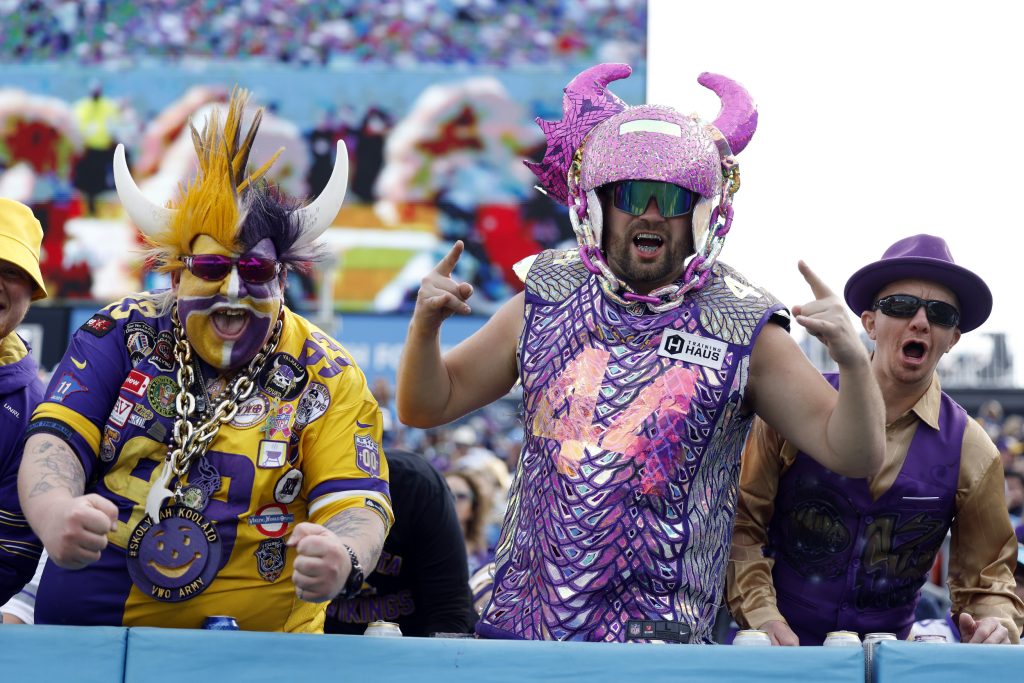The upcoming Week 18 clash between the Minnesota Vikings and the Detroit Lions has ignited significant anticipation, transcending the typical excitement of a regular season finale. The stakes are exceptionally high, with both teams vying for the coveted No. 1 seed in the NFC playoffs, a position that guarantees a crucial bye week and home-field advantage throughout the playoffs leading up to the Super Bowl. This matchup pits two of the NFL’s premier teams against each other, promising a thrilling contest showcasing top-tier talent on both sides of the ball. While both teams boast formidable rosters, the Lions hold a distinct advantage by playing at their home stadium, Ford Field, in Detroit.
Recognizing the significance of home-field advantage, the Vikings embarked on a controversial strategy to mitigate the Lions’ inherent edge. In a move that raised eyebrows across the league, the Vikings organization purchased approximately 1,900 tickets for the game, at a reported cost of around $1,000 per ticket, totaling nearly $2 million. These tickets were subsequently offered to Vikings season ticket holders via email at significantly reduced prices, with some seats even being sold for as low as $200. This tactic effectively allowed the Vikings to inject a substantial contingent of their own fans into Ford Field, potentially offsetting the Lions’ home crowd advantage.
The Vikings organization justified their actions by emphasizing their desire to provide a better game-day experience for the families of players and staff members, given the historical significance of this regular season game. The team framed the ticket purchase as an opportunity to offer stakeholders, including staff, family, season ticket members, and team partners, a chance to attend this crucial matchup. Officially, the tickets were distributed on a first-come, first-served basis and were intended for use by Vikings fans, explicitly discouraging resale.
Despite the Vikings’ stated intentions, the move sparked controversy and prompted scrutiny. Some season ticket holders, capitalizing on the discounted prices, resold their tickets on secondary markets, with some fetching prices as high as $1,200. This fueled speculation that the Vikings’ primary motivation was to manipulate the ticket market and gain an unfair advantage. The Lions, alerted to this activity, reported the situation to the NFL league office. However, according to reports, the league determined that the Vikings had not violated any NFL rules, effectively clearing them of any wrongdoing.
The Vikings’ maneuver, while controversial, highlights the importance of home-field advantage in high-stakes NFL games. The team’s willingness to invest a significant sum to secure tickets for their fans underscores the value they place on creating a supportive atmosphere for their players, even on the road. While the ethical implications of their approach remain a point of contention, the Vikings’ actions demonstrate a strategic awareness of the impact crowd noise and fan support can have on game outcomes. Their efforts to neutralize the Lions’ home-field advantage reflect a broader trend in professional sports where teams explore creative, and sometimes controversial, strategies to gain a competitive edge.
Irrespective of the ticket controversy, the Vikings-Lions matchup promises to be a captivating contest. The game holds significant playoff implications, with the winner securing the No. 1 seed and the accompanying benefits. Both teams possess potent offenses and robust defenses, setting the stage for a hard-fought battle. While the Vikings’ ticket strategy adds an intriguing subplot to the game, the focus will ultimately return to the on-field action, where the two teams will compete for NFC supremacy and a crucial step towards Super Bowl contention. The outcome of this game will undoubtedly shape the NFC playoff landscape, setting the stage for what promises to be an exciting postseason.










